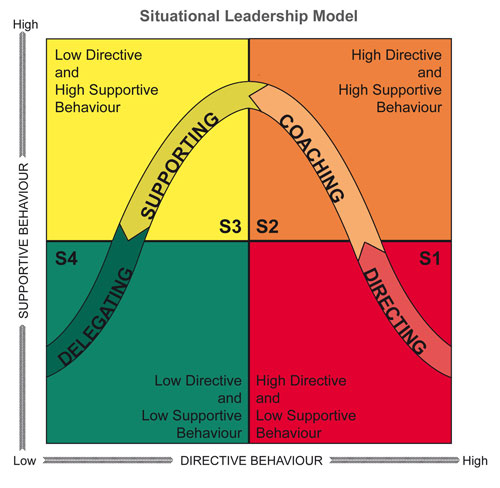
Do you Really Know What’s Going on in Your Remote Team?
Posted on:
by Michael Lantry
IT Jobs and Recruitment Insights
Do you have responsibility over the performance of other members in your team? Have you changed how you manage those team members if they are now remote working and previously weren't?
For many leaders and managers, the pandemic thrust them into a remote working environment and created major challenges in how they manage their team members. When everyone was in the office together, it was far easier to coach someone in person or see how people were doing and how hard they were working.
You could see what work was going in. When your team is remote, you cannot see this. It has forced managers to rethink their approach. You see a lot of opinions now that effective line management is trusting your team to do their job and giving them the autonomy to deliver the desired outcomes.
But does this work all the time? Probably not. Consider the example of a salesperson who is new to the business and lacks experience. This person will struggle to deliver outcomes without clear direction on inputs.
So, what's the best management style to adopt?

Effective management of a remote team really requires a manager to adjust their approach to each member of the team and their individual needs. To frame this argument, there is a very useful model developed by Hersey & Blanchard (from their work in the late 1960’s and 1970’s).
Hersey & Blanchard developed this model to contribute to the theory of ‘Situational Leadership’. This school of thought relates to how leaders within organisations should vary their approach to leadership based on the situation or task in front of them, rather than applying the same leadership style all the time.

Hersey & Blanchard: Situational Leadership Theory
In this model, the behaviour of the manager is Directing, Coaching, Supporting or Delegating. This all depends on the situation at hand and the competence of the team member.
So taking the earlier example of an inexperienced sales person, they will need a lot of direction. Essentially you have to tell them what to do, when and how. Quite often you have to do the task for them as they watch and learn. Once they have developed that skill or competence, you can start to support them as they take ownership of the activities, with your guidance and so on.
This theory has literally been around for decades. But applying this to the current context of remote working is worth some analysis.
A manager can no longer depend on reading the room to gauge how the team is getting on. They cannot hear a colleague on a call and then take a moment to coach them on a certain situation right after it happens, to talk about how it was handled and how to approach it in the future.
It becomes much harder to be a directing or coaching manager remotely. Conversely, it might be actually easier to be supporting or delegating when working remotely as there is less temptation to stick your nose in when it's not needed.
For a manager working with a remote team, now more than ever, you need to develop the ability to know when to adapt a particular leadership style. Before March 2020 many managers simply followed their gut from a read on a situation that they no longer have as they are not in the room.
The key to success for a manager is developing the ability to get that read, but remotely. This will make the rest a lot easier. Once you know what the situation requires, then you can adapt the approach that will get the best results.
Many teams, particularly in the IT industry, use technology for communication like Zoom for calls or Slack for collaboration. This will get you only so far. How does a manager quickly and accurately understand the situation, in order to approach it with the appropriate leadership style?
I am not purporting to know the right answer to this question, but I would like to suggest three tactics that could help.
My top 3 suggestions on how to read the room, remotely:

-
Ask
This may not be ground breaking, but why not simply ask the team member what they need from you. They will tell you if they need direction or coaching or to be simply left at it. I know I am over simplifying here but the very act of asking puts the ownership with that team member and builds accountability.
This only works if you have a relationship of trust with your team. They have to feel comfortable in asking for direction or coaching. If there is fear, they may not want to risk a backlash or judgement for asking for support or direction. This concept of ‘psychological safety’ in a team and how important it is cannot be understated.
-
Monitoring outcomes
By closely monitoring the outcomes of your team members you will develop a clear understanding of what is working and what isn't.
For example, if a sales person is getting tonnes of meetings but not getting deals closed, then you can take a supporting or delegating approach to lead generation, but perhaps need to get into coaching mode to address the tasks relating to the closing of deals.
Directive and coaching styles should be adopted in the areas where outcomes don't meet expectations (and the underlying reasons for this).
-
Constant Feedback
As a team member develops over time, you will hopefully have regular feedback meetings (e.g. 1 to 1’s, appraisals etc.). These are formal, structured communication formats. Keep them going of course. But now you have to go a lot further. As there are no ‘water cooler’ chats, you have to find opportunities to have informal conversations with your team.
This has to be more deliberate as it cannot come as naturally as it used to. Doing this gives them the opportunity to air problems, or share wins. In turn, you can then give praise or constructive criticism when it's appropriate. Doing this consistently and regularly, will allow you to know how your team member is getting on and get a deeper understanding of the situation.
I don't think anything I have put into my blog here is groundbreaking, but I do think that more careful consideration and action is needed by managers now. If you are not thinking about these things, you will lose that read on the situation and potentially miss manage someone or something. This can easily cause retention issues.
I challenge all managers out there to sit back and ask themselves if they genuinely have the ability to get an accurate read of the situation on their team right now. If not, then you have to be thinking about how you can.
If you ever want to chat about management or leadership theory, I would welcome the debate. This is a topic that really interests me and is relevant in any industry or team dynamic.
For more insights on working remotely, the IT industry or recruitment, please head over to our IT Career Insights page or contact us on info@gempool.ie.
Cover image attribution: Business vector created by stories - www.freepik.com





